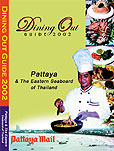
by Dr. Iain Corness |
What did we learn from the San
Marino GP two weeks ago?
Well, we learned that the Schumacher
brothers are true professionals, both racing despite the
accidental death of their mother in the early hours after
qualifying. Ralf’s performance in the early part of the race
while leading big brother Michael was particularly
scintillating.
We also learned that perhaps Fisichella’s
win in Brazil was a case of the field being tightened up by
five Safety Car periods and being in the right place at the
right time, because he was certainly not on the pace at Imola.
Jaguar’s woes continued, with both the
green cats having problems getting off the line, and despite
Webber’s best efforts, they all came to nought with another
drive shaft failure. Pizzonia continues to be less than
impressive, and the rumours abound that Jaguar may finish his
contract early. However, until they have two cars that will
get to the finish flag, it would appear to me to be a little
hasty.
Raikkonen continues to impress, and
deserves his current top spot on the ratings. Coulthard, on
the other hand, has managed to get to second spot without
having passed a single car in four races. He even admitted
after his solitary win this year that he hadn’t actually
passed anyone.
Autotrivia
Quiz
Last week I mentioned that I spotted what I
think was a Fiat 508 circa 1937, complete with a ‘leopard
skin’ bonnet cover in Chiang Mai. The Fiat 508s were sold in
France under another name, and I asked what was it? The answer
was the Simca Huit.
And so to this week. The concept of hybrid
cars is all the rage at present, with petrol-electric engines
returning amazing fuel economy figures. However, this is
nothing new. In 1900, a racing version vehicle with this type
of propulsion, complete with the designer at the wheel, won
the Semmering hill climb. The petrol engine turned a dynamo
that produced electricity to drive the two electric motors.
The question is - what was the name of this car?
For the Automania FREE beer this week, be
the first correct answer to email [email protected]
Good luck!
How many G’s do you get
when you hit a wall?
Lots! When Fernando Alonso clobbered the
wall at the Brazilian GP, he hit the wall with an impact of 35
G, followed by a second impact of 60 G.
Taken from readouts from the Renault’s
electronics, after a relatively light impact with Mark Webber’s
Jaguar’s wheel lying on the circuit, of around 4.5 G, the
accident data recorder indicated the first impact with the
wall was a 35 G lateral and 35 G longitudinal impact, followed
by a second side impact of 60 G.
If you think that’s a fairly rapid rate
of deceleration, it is nothing compared to that which was
encountered by David Purley when he crashed during practice
for the 1977 British GP. His car went from 170 kph to zero in
0.66m - that’s about 22 inches in the old money -
experiencing G forces of 180, the highest ever impact that a
human being has encountered and survived, earning a place in
the Guinness Book of Records, by a rather hard way.
Having cheated death on the ground, he was
not so lucky in the air. In 1985 he was killed whilst flying
his stunt plane off the Bognor Regis coast. You win some, you
lose some!
|
Ford Motor Company knows when
they’re on a good thing
FoMoCo has indicated that they are thinking
ahead, and are prepared to use the best in its stable as a
basis for the new bunch of Fords. Using their stake in Mazda,
they are going to appropriate the Mazda 6 to be the vehicle
platform for up to 10 new vehicles from Ford Division, Lincoln
and Mercury. First of these will be the Ford Futura in 2005.

Mazda
6
The Mazda 6, a mid-sized sedan which was
introduced last year by Ford affiliate Mazda Motor Corp, and
is unfortunately not sold in Thailand, but has received rave
reviews all over the world. The thinking is obviously that if
they have stumbled on a ‘good thing’ they should make the
most of it.
The new vehicles will fill many holes in
Ford Motor’s product line-up, giving more substance to CEO
Bill Ford’s promise of a turnaround produced by new
products.
According to sources in America, Ford’s
challenge is to make distinctive vehicles for all three
brands, particularly Lincoln, from the Mazda hardware.
FoMoCo say they chose the Mazda 6 in part
because the platform can be lengthened and widened, and they
can us as much as 65 percent of Mazda 6 parts in the new
vehicles. Another reason could be the fact that the Mazda 6
already was in North America, having gone into production last
year at a joint-venture plant in Flat Rock, Michigan.
Spanish
Grand Prix this weekend
The travelling circus goes to Barcelona in
Spain for the fifth round of the championship. Last year there
were great moans because the Ferraris scooped the pool, but
that certainly is not the case this year, with four different
winners from four races so far. They are Raikkonen and
Coulthard in the McLarens, Fisichella in the Jordan and
Michael Schumacher in the Ferrari.

Quite frankly, it is anyone’s
championship at this stage. McLaren has got their drivers up
there through consistency, Williams have to break through
soon, and Ferrari has just been unlucky for the most part.
The race should be televised here at 7 p.m.
local time, but as always, check your own TV guide! The
"new" names at the pointy end have been Alonso
(Renault) and Webber (Jaguar). I predict good things for both
of these young drivers, though hopefully, Alonso will have
learned what the waved yellow flags are supposed to mean!

In Pattaya I watch the big screen at
Shenanigans. Join me for what should be an interesting
evening.
Who is
Fernando Alonso?
Having mentioned Alonso twice this week, we
might as well look a little further at his career to date.
Like most Eff Wun racers, he began in karts, but Alonso
started when he was three years old!
By the age of twelve he was Spain’s
Junior Karting Champion, a title he held for four years in
addition to winning the World Junior Kart Championship in 1996
at the age of 15.

Fernando
Alonso
Progressing to Inter-A Karting, Fernando
won the Spanish (twice) and Italian titles before progressing
to single-seaters, the Euro-Open Movistar Nissan Championship,
which he won at the first attempt, winning 6 races and
starting from pole on 9 occasions.
The following season, he graduated to
F3000, finishing second in Hungary and first in Belgium,
finishing fourth in the championship behind another F1
graduate, Mark Webber.
In 2001, he ran for Minardi making his F1
debut on March 4 at Melbourne, becoming the third youngest
driver to start an F1 Grand Prix.
For 2002 Fernando returned to Benetton (now
called Renault) as test driver, and replaced Jenson Button for
this year.
2003 has been a good year so far, and he
has certainly made the F1 circus sit up and take notice.
|
|
Where do you go for service?
One of the perennial cries, anywhere in the
world, is "Where can I get my car
serviced/repaired?" This item was prompted by a letter I
received last week from the north, asking just that. "I
now live in Chiang Mai and am considering buying a pre-used
Jaguar. I know of several shops in Bangkok that specialize in
Jaguars. Do you know if there is a shop in Chiang Mai that has
a mechanic that specializes in Jaguars? Thanks, in
anticipation of your advice."

This is definitely not just a Thailand
problem, however. In fact, the major carmakers have all now
begun to understand that customer loyalty (read - will buy
another car from us next time) depends on the quality of
service they get for their current vehicle, just as much as
whether the current car is reliable. With today’s vehicles,
which are all reasonably well screwed together, the
reliability factor becomes less and less. And when you
remember that your "ABC" branded vehicle was
actually built by "XYZ" car company (a quick example
- the Subaru Traviq in Japan is actually a re-badged Chevrolet
Zafira built in Thailand, which is actually originally the
European Opel design).
Some of the manufacturers have begun dealer
accreditation programmes to improve customer service and
satisfaction, with Mazda Sales (Thailand) Managing Director
David Grakul being reported last month in Thai Autobiz as
saying, "On the after sales service, we’ve got the
Quality Service Programme. It’s a very structured programme
that was developed by Mazda in Japan. What it involves is
getting the customer service people to spend 6-9 months in the
dealership; training service advisors, training technicians
... and making sure the technicians and service advisors are
very proficient on the latest diagnostic tools that we have.
It’s an intense programme that we have expanded into fifteen
dealerships."
That type of training within the
dealerships is also being done by BMW, Ford, GM, Toyota and
Honda - but with varying degrees of success. I also heard last
week of someone who went into a major Japanese dealership to
ask about a new car and the sales person couldn’t even give
the prospect a brochure to look at, but did know the prices of
the models! Customer satisfaction? Zero, and zero sales also.
He went to the opposition and bought there.
However, getting back to the gentleman with
the Jaguar problem in the north - can anyone in Chiang Mai,
with a Jaguar, suggest anywhere for the gentleman to go? You
can contact me through the automania email address and I shall
pass it on.
For those of you in the Eastern Seaboard
area, I can recommend CMS, a general garage, run by Martin, a
Swiss-German (but speaks good English). He has a towing
service too and does stand behind his mechanical work. I have
also found him to be very obliging. He understands customer
service! He is on Sukhumvit Road between Jomtien and the
Ambassador City, telephone 038 233 368 (after 10 a.m.).
|
|
|
|

News | Business News | Features | Columns | Letters | Sports | Auto Mania
Kid's Corner | Who’s Who | Travel | Our Community | Dining Out & Entertainment
Social Scene | Classifieds | Community Happenings | Books Music Movies
Clubs in Pattaya | Sports Round-Up
E-mail: [email protected]
Pattaya Mail Publishing Co., Ltd.
370/7-8 Pattaya Second Road, Pattaya City, Chonburi 20260, Thailand
Tel.66-38 411 240-1, 413 240-1, Fax:66-38 427 596
Copyright © 2002 Pattaya Mail. All rights reserved.
This material may not be published, broadcast, rewritten, or redistributed.

|
|


Now
Available
|













